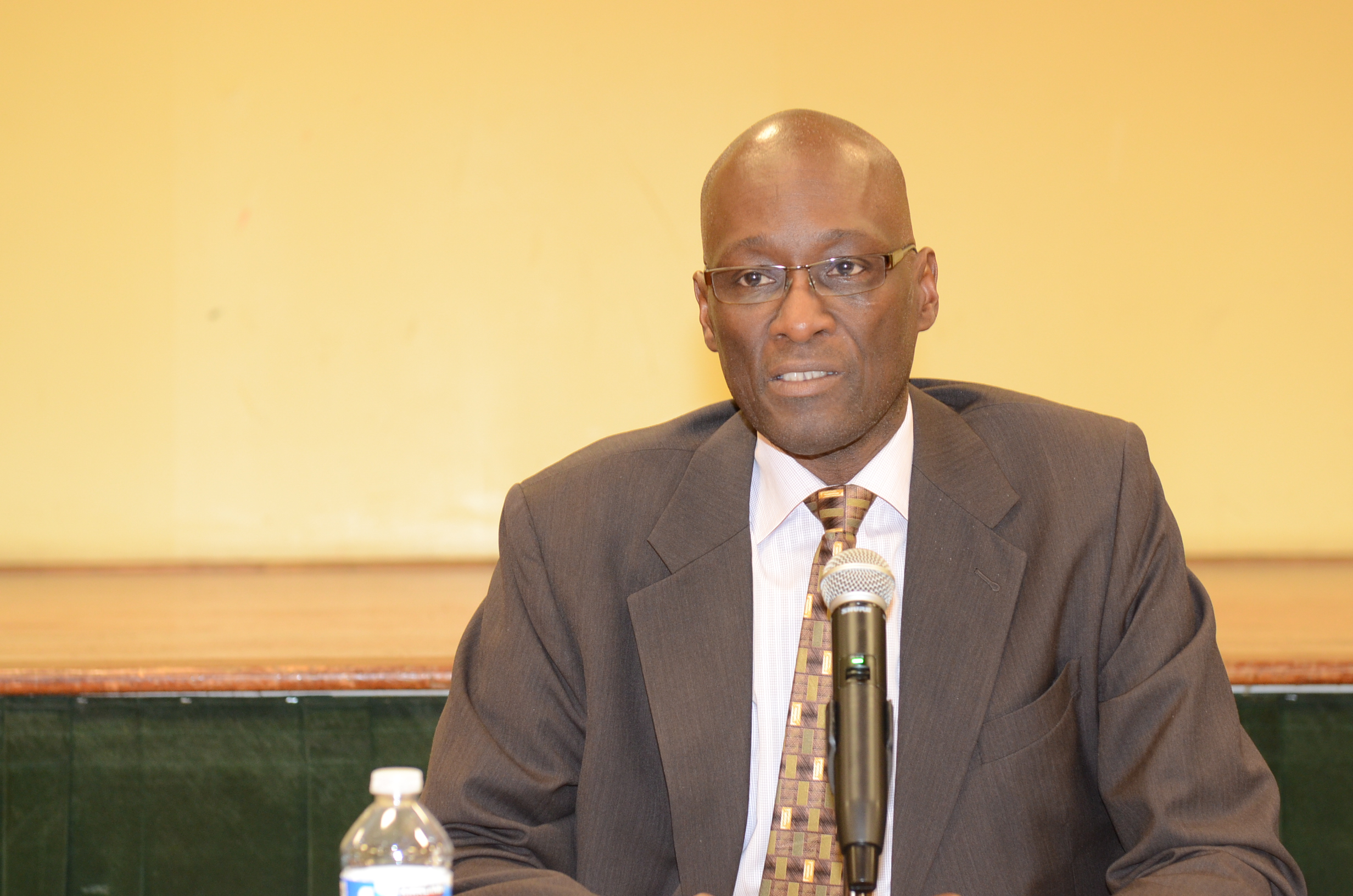Star columnist Royson James rejects stereotypes of Jamaicans
The number of Jamaicans committing criminal acts in Canada is infinitesimal compared with the thousands of brilliant nationals from the Caribbean island who are making a significant impact to this country, Toronto Star municipal affairs columnist Royson James reminded Canadians in the keynote address at the Jamaican Canadian Association’s (JCA) 53rd annual gala awards last Saturday night.
“We outnumber the criminals a thousand to one, yet it’s so easy to forget us,” he said. “We are not in the news. We don’t shoot up, shoot out, gang bang, breed indiscriminately, suck the welfare system and take more than we give. We just build this city with verve and energy and force of will. And it’s easy for you to forget about us because our contributions are not the subject of press reports.”
To prove his point, James and six Toronto Star reporters followed 50 Torontonians of Jamaican descent for 24 hours in November 2012 to explore their impact on the city.
“We wanted to show how much impact and influence 50 Jamaicans wield in making Toronto great and the sheer brilliance and reach of Jamaicans here,” he said. “We are not bad news. We are intricately intertwined with the infrastructure of this city. We are builders, we belong here and any attempt to treat us other than such, to dismiss us as criminals, to card us and harass us with street checks is to be met with outrage.
“The message is please remember that the lack of positive exposure of the Howard Shearers (the son of a former Jamaican PM is the president and chief executive officer of Hitachi Canada Ltd.), the Donald McLeods (he’s a provincial court judge) and Dr. Kenneth Montague (he’s a dentist and art collector/curator) does not mean that the brilliant, gifted and productive Jamaican is the exception. That’s not the case. We are the unwritten rule. Nobody hears about us because we are doing so well.”
Migrating to Canada in 1969, James was a reporter with the now defunct Contrast community newspaper before joining the Toronto Star in 1981. He provides analysis and perspective on city issues ranging from waterfront redevelopment to police-community relations.
James urged community members, particularly those with management skills and clout, to step up to the plate and lead from the front on issues that affect their community.
“This is no time for ‘incognegroes’ (the name he assigned to the group of people of Jamaican heritage in Toronto who refused to be interviewed for the Star story three years ago because they wanted to travel under the radar and just make money – and others like them). We are at a critical point where the human rights gains could be reversed. To sit and be quiet is to desecrate the promise of a true North, strong and free.
“Be one of the teachers on issues that you know and understand and make sure that people like me advocate on your behalf. Many of you are in big jobs, you are at the table, you have worked hard and have a lot at stake. The temptation is to turn the door on your community and act as if you are not cut from the same cloth. The message is your community needs you. Everyone needs an anchor, roots and tributaries that flow from some head water far away that may need some mapping. The community needs your voice wherever you are.”
Established a month after Jamaica secured its independence on August 6, 1962, the JCA is one of Canada’s oldest and largest multi-service agencies.
In the past year, significant changes were made to the governance structure to increase the organization’s relevancy. The JCA was split into three entities – the Caribbean African Canadian Social Services (CAFCAN), the JCA Membership Organization and a JCA Foundation.
The critical social services delivery through full and part-time professional staff will be governed by a separate board that will set policy and provide leadership that will enable it to blossom and grow by fully serving the designated communities within its mandate.
Reminding them they are blessed and highly favoured, James asked the JCA to consider starting a campaign to promote and brand Jamaica’s goodness to counter the negative behaviour of a few and harmful media stereotypes.
“Incapable as we are of quickly stemming the virus that infect some of our youth considering the dysfunction of their lives, the JCA may want to channel and focus a campaign of Jamaican goodness to counter the debilitating effect of Jamaican badness,” said James, who was the recipient of a JCA Outstanding Achievement Award. “The former outnumber the latter a thousand to one, but it may be time to showcase the goodness deliberately. We need to package the goodness so that others can see us for what we are which is a boon to this city.”
He also suggested the JCA could be the leader for the rest of the Black population in the city.
“To remain in our Jamaican enclave is to limit our potential,” he said. “Our strength as an island nation, especially here in Toronto, would be so much more effective and powerful if we lead an initiative that brings us together as peoples of the African Diaspora.”
Ontario’s Premier Kathleen Wynne, Liberal Member of Parliament Judy Sgro, MPP Granville Anderson and Toronto Police chief Mark Saunders attended the gala that was also a celebration of Jamaica’s independence secured on August 6, 1962.
“I am here because I believe in what this organization does,” said Wynne. “I believe in its history, I believe in the importance of this organization going forward, all of you and the work you do.”
The JCA’s founding executive comprised its first president, Roy Williams, who attended the gala; Bromley Armstrong, Phyllis White, Mavis Magnus and the late Violet Carter, J.B. Campbell, Esmond Ricketts, Ira Dundas, George King and Owen Tennyson.






